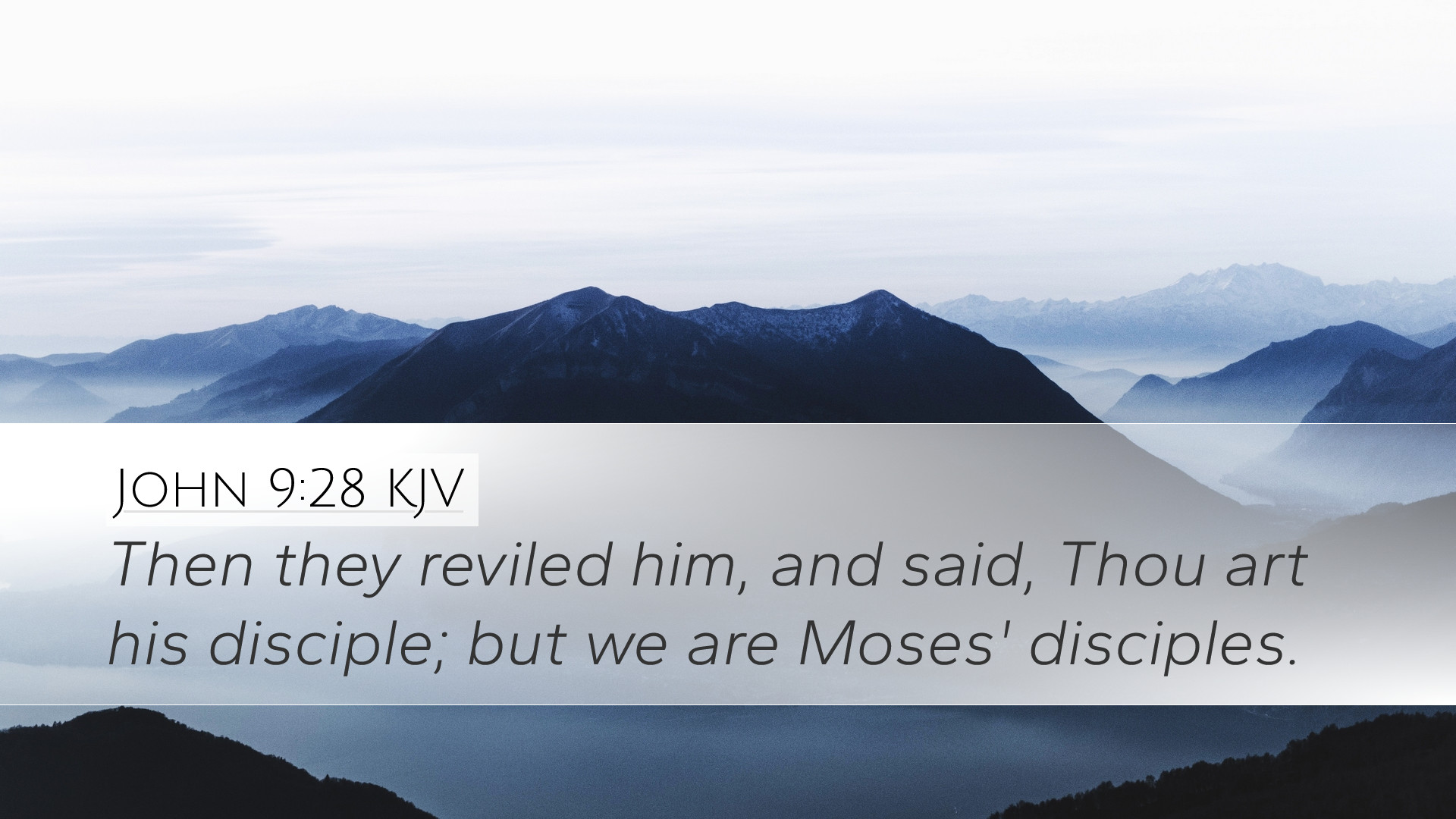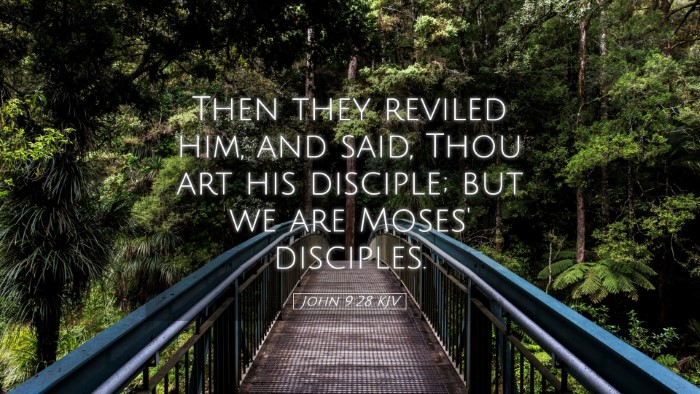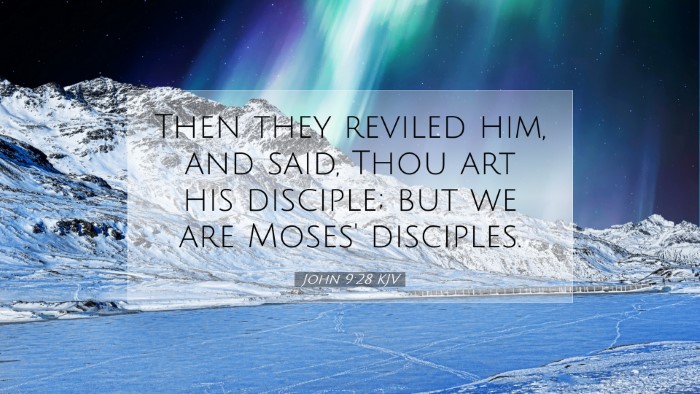Commentary on John 9:28
In the narrative of John chapter 9, we find a profound encounter that revolves around the healing of a man blind from birth. The verse in focus, John 9:28, captures a moment of confrontation and indignation faced by Jesus' disciples from the religious authorities. In their response, we uncover layers of meaning that warrant deep exploration.
Contextual Background
The passage occurs within a significant miracle of Jesus, demonstrating His authority and compassion. His act of healing the blind man not only serves a physical purpose but also symbolizes spiritual illumination. In the repetitive questioning from the Pharisees, we see a refusal to accept the miraculous work of Jesus and a struggle against the implications of His identity.
Verse Text
"Then they reviled him, and said, You are His disciple; but we are the disciples of Moses." (John 9:28, NKJV)
Insights from Public Domain Commentaries
Matthew Henry's Commentary
Matthew Henry remarks on the attitude displayed by the Pharisees towards the healed man. He emphasizes their contempt and the way they sought to discredit the blind man's testimony of Jesus. The term "reviled" indicates not just mere disagreement but a vehement hostility, designed to intimidate and silence him.
Henry also connects this moment to the broader theme of conflict between the teachings of Jesus and the established religious norms of the time. He points out that the Pharisees took pride in their Moses-centered faith yet failed to recognize the fulfillment of the Law through Christ.
Albert Barnes' Commentary
Albert Barnes elaborates on the implications of being labeled as a disciple of Jesus versus a disciple of Moses. He notes that to be called a disciple of Moses carried significant honor within the Jewish community; therefore, the Pharisees wielded this title to delegitimize the blind man’s testimony. Barnes highlights the irony in their stance: while claiming allegiance to Moses, they were neglecting the greater truth revealed in Jesus.
Furthermore, Barnes discusses the importance of personal faith and testimony, as demonstrated by the blind man's response. He asserts that the healed man represented a courageous stand for truth in the face of opposition.
Adam Clarke's Commentary
Adam Clarke adds depth to the understanding of the bitterness with which the Pharisees responded. They had an inexplicable hostility towards Jesus and anything associated with Him. Clarke explains that their rejection of the man’s testimony illustrates their refusal to accept the evidence of their own senses, which was the miracle itself.
Moreover, Clarke highlights the contrast between the disciples of Moses, who adhered strictly to the Law, and the disciples of Jesus, who represent grace and truth. The Pharisees' reliance on Moses blinded them to the reality of Christ's divine mission. Clarke concludes by encouraging believers to appreciate the light and truth found in Jesus, recognizing the dangers of spiritual blindness.
Theological Reflections
This confrontation encapsulates several theological themes. First and foremost is the theme of illumination versus blindness. The physical healing of the man parallels the spiritual awakening invited through faith in Christ. The Pharisees, despite their religious stature, are depicted as spiritually blind—a reminder of the need for humility and openness to divine revelation.
Additionally, the verse raises critical questions about identity and discipleship. In a society where affiliations dictate one’s standing, the healed man choice to assert his following of Jesus invites all believers to consider their own loyalty. Are we disciples of tradition, or followers of Christ, who calls us to a transformative relationship?
Conclusion
The account in John 9:28 serves as an admonition to seek true understanding and to remain steadfast in faith amidst opposition. As we reflect on the insights from the commentaries of Henry, Barnes, and Clarke, we're reminded of the necessity of both spiritual sight and courageous witness. May this passage continually inspire believers to stand firm in the truth they have encountered in Christ, while engaging lovingly and truthfully with those who may oppose or misunderstand the Gospel.


